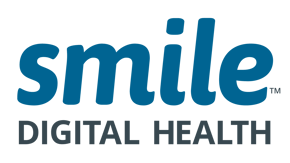Easy Data Analytics & Audit Trail Efficiencies Are Now Available with Smile’s Yucatán Release
Our 25th product release—codename: Yucatán—was not just about software updates. We like to think of it as a catalyst for the revolution in healthcare technology.
In the Gartner® Hype Cycle™ for Healthcare Data, Analytics and AI, 2023 report, Gartner discusses the rising impact of FHIR-based healthcare analytics, on business across the ecosystem. Smile is mentioned in this report as a sample vendor of healthcare analytics on FHIR. We are thrilled to be recognized for our work in this area.
Continuous process improvement, feature refinements and experimental additions were a big part of this quarterly release. Yucatán includes a ton of small, medium and routine upgrades, refinements and enhancements to HAPI® FHIR® and Smile’s product family as well as the Clinical Reasoning (CR) product family. It also includes new and experimental features and additions that were inspired from our participation in HL7 FHIR Connectathons. We’ve also added a new development forecast page on our docs site, which serves as our intended roadmap for upcoming features.
Our entire release list and full video webinar are available here. In this blog, specifically, we talk about the two features we are most proud of, and how your organization can benefit from them.
HFQL/SQL for Easy Data Extraction & Analysis
One feature we are really excited about in the Yucatán release is called HFLQ/SQL (HAPI FHIR Query Language for SQL). It is a new, and at this point, experimental SQL-based query language that’s baked right into HAPI FHIR and Smile’s Digital Health products, including the Health Data Platform (HDP) and dQM (digital Quality Measures) solution.
Many payer, provider and HIE organizations use CQL against their FHIR repositories for analytics and data extraction. But it hasn’t been a smooth and easy process until now! With HFQL, an organization can search across their entire base of FHIR and complete their data extraction.
With growing volumes of data across the health ecosystem, it is no longer feasible to create and analyze a pivot table. Low-level analytical tools like that cost your organization considerable time, resources and effort. Consider the time, resources and administrative effort that low-level analytics tools cost your organization. Since timely data analytics lives at the heart of informed decision-making, your organization needs a way to complete analytics with growing volumes of data.
FHIR enables interoperable and shareable data within and across organizations, but FHIR data cannot be exported into Excel. By using HFQL, your organization can apply certain value parameters that are expressed as pivot tables. This enables a clear and immediate view of the data, while giving you the ability to generate meaning and learning from it. Your organization may already use CQL to query across volumes of unstructured data. As such, you may know that replicating CQL into FHIR is a big and time-consuming process. Historically, there wasn’t any native support for analytical queries.
With HFQL, your healthcare organizations can extract meaningful insights from vast datasets with speed and ease. These insights, derived from data-driven decisions, lead to improved patient care, optimized resource allocation, and a more sustainable healthcare model. But it’s not enough that we think so.
Working with CQL is complex. As such, we have built HFQL to support the low effort, low cost, meaningful data analytics for operational efficiency. At Smile, we encourage our clients, partners and the larger community to play with this experimental feature and give us feedback on what additional features and adjustments you need.
If your organization is ready to FHIR up health analytics, contact us today.
Compliance & Audit Support for Internal Efficiency & Empowerment
A gap we identified this year in the FHIR system is the lack of reusable audit trails. Historically, event resources for audits were available and usable, but there was no streamlined way to model them. This meant that two separate implementations, even within an organization, would potentially have very different looking audit trails that could not be aggregated. For every implementation, a set of models and decisions would have to be taken, which creates internal inefficiencies.
As such, we are thrilled to announce that we now offer support for the IHE IG called Basic Audit Log Patterns (BALP). For those unfamiliar, the Integrating the Healthcare Enterprise (IHE), is a not-for-profit interoperability-focused initiative made up of healthcare professionals and IT experts. One of their implementation guides (IG), BALP, defines some basic and reusable audit patterns.
As part of the Yucatán release, Smile has developed an interceptor (tool) called BalpAuditCaptureInterceptor. It allows your organization to generate BALP Compliant Audit Event Records that are fully compliant with IHE IG. Your organization can then decide where these records go (and are saved) within your larger architecture.
As a part of demonstrating this awesome capability, we have added BALP Compliant Audit Logging to our public HAPI FHIR test server. This means that every action you complete on HAPI FHIR—every search, update, and read on the public server—generates an audit event. These audit events get routed to a new FHIR repository, where the audit log architecture is viewable. The IP addresses are anonymized and usernames are not associated, so the audit trail and architecture will not cause a privacy leak.
With our new interceptor, there is a single specification for audit trails that everyone can adopt, aggregate and re-use. Even with a series of third party vendor apps connecting with your organization’s FHIR-based system, audit trails follow a consistent pattern, model and architecture.
Compliance and audit are highly interconnected to digital quality measures in healthcare. An internal optimization tool, such as BALP, saves your organization valuable time and resources in obtaining rich, clean datasets for analysis. This ensures the delivery of the best possible, informed care.
Want to learn more about how our compliance and audit features support digital Quality Measures?
Get to know us face to face! We would love to see you at the NCQA Health Innovation Summit


